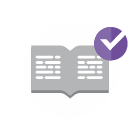How to peer review
Peer review is designed to assess the validity, quality and originality of articles for publication. Reviewers play an essential role in validating the research submitted and providing constructive feedback to the editors and authors. You can find more detail about the peer review process here.
BMJ asks that its reviewers evaluate articles based on the requirements of the journal, quality, completeness and accuracy of the research presented. We also ask that reviewers abide by out Peer Reviewer Terms and Conditions to ensure that the process is robust.
Here is a quick guide on how to make a good review.
For all articles:
- What contribution does the article make to existing knowledge?
- Does the article read well and make sense?
- Does the article have a clear message?
For research articles
- Originality — does the work add to what is already in the published literature? If so, what does it add? Please cite relevant references to support your comments on originality.
- Importance of the work to general readers — does this work matter to clinicians, researchers, policymakers, educators, or patients? Will it help our readers to make better decisions and, if so, how? Is the content appropriate for the journal?
- Scientific reliability
- Research question — is it clearly defined and appropriately answered?
- Overall design of study — is it appropriate and adequate to answer the research question?
- Participants — are they adequately described, the conditions defined, inclusion and exclusion criteria described? How representative were they of patients whom this evidence might affect?
- Methods — are they adequately described? Is the main outcome measure clear? Is the study fully reported in line with the appropriate reporting statement or checklist? (These are all collected and regularly updated at equator-network.org) Was the study ethical? (This may go beyond simply whether the study was approved by an ethics committee or IRB)
- Results — do they answer the research question? Are they credible? Well presented?
- Interpretation and conclusions — are they warranted by and sufficiently derived from/focused on the data? Are they discussed in the light of previous evidence? Is the message clear?
- References — are they up to date and relevant? Are there any glaring omissions?
- Abstract/summary/key messages/what this paper adds — do they reflect accurately what the paper says?
- Documents in the supplemental files, e.g., checklists for reporting statements, e.g., CONSORT, PRISMA, and STROBE (see equator-network.org for other examples and for extensions to existing statements); and the protocol for an RCT. Do these properly match what is in the manuscript? Do they contain information that should be better reported in the manuscript, or raise questions about the work?
Not all of these points will be relevant for non-research articles. Please use your discretion about the above list when reporting on other types of article.
Resources
Several of our Editors have provided some guidance on how to review. You may find also find it helpful to browse our resources for authors, advice on the journal’s article types and our training materials for peer reviewers that have been created for The BMJ.
Sense About Science have produced a free guide for early career researchers, which you may also find useful.

